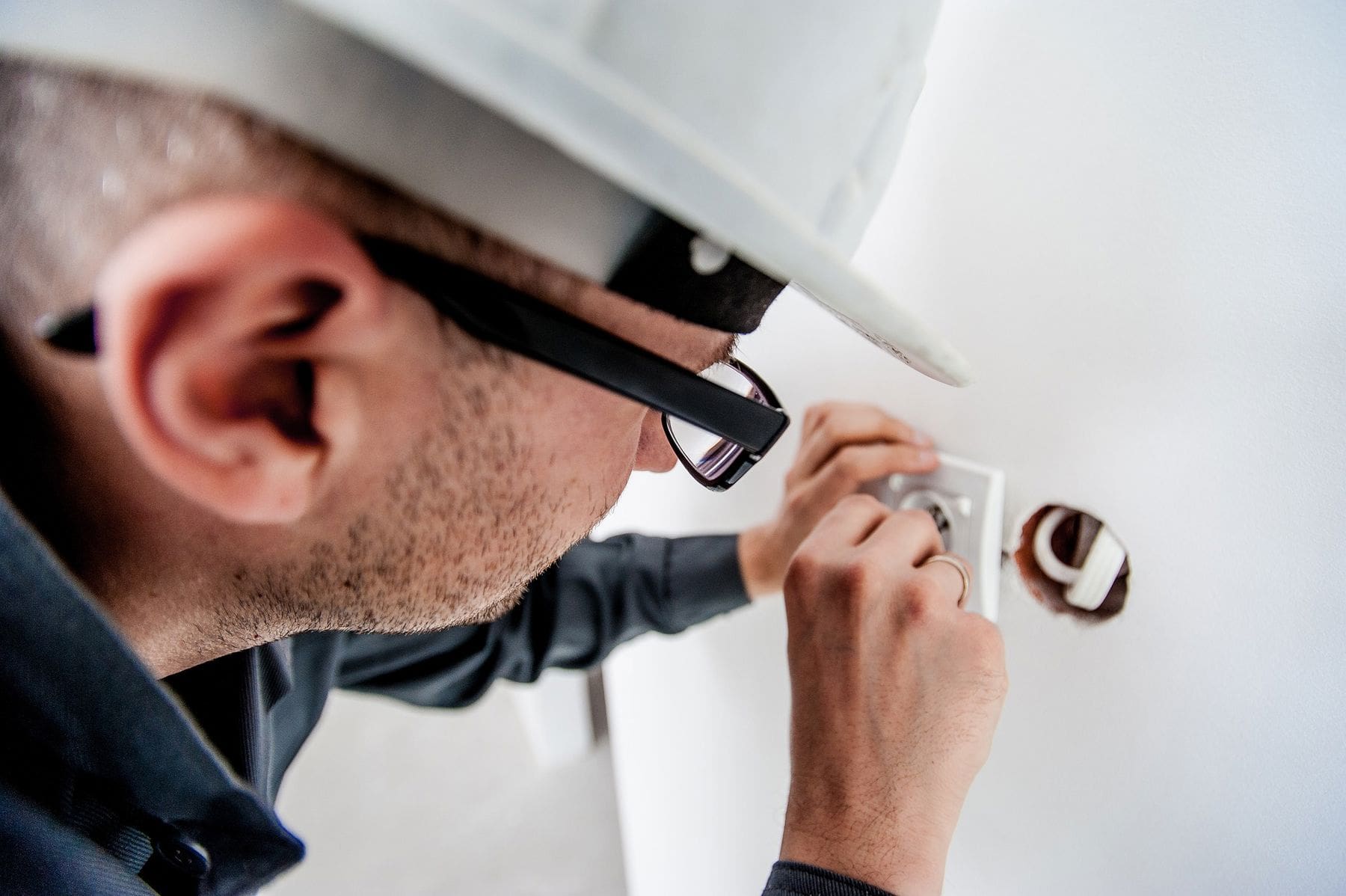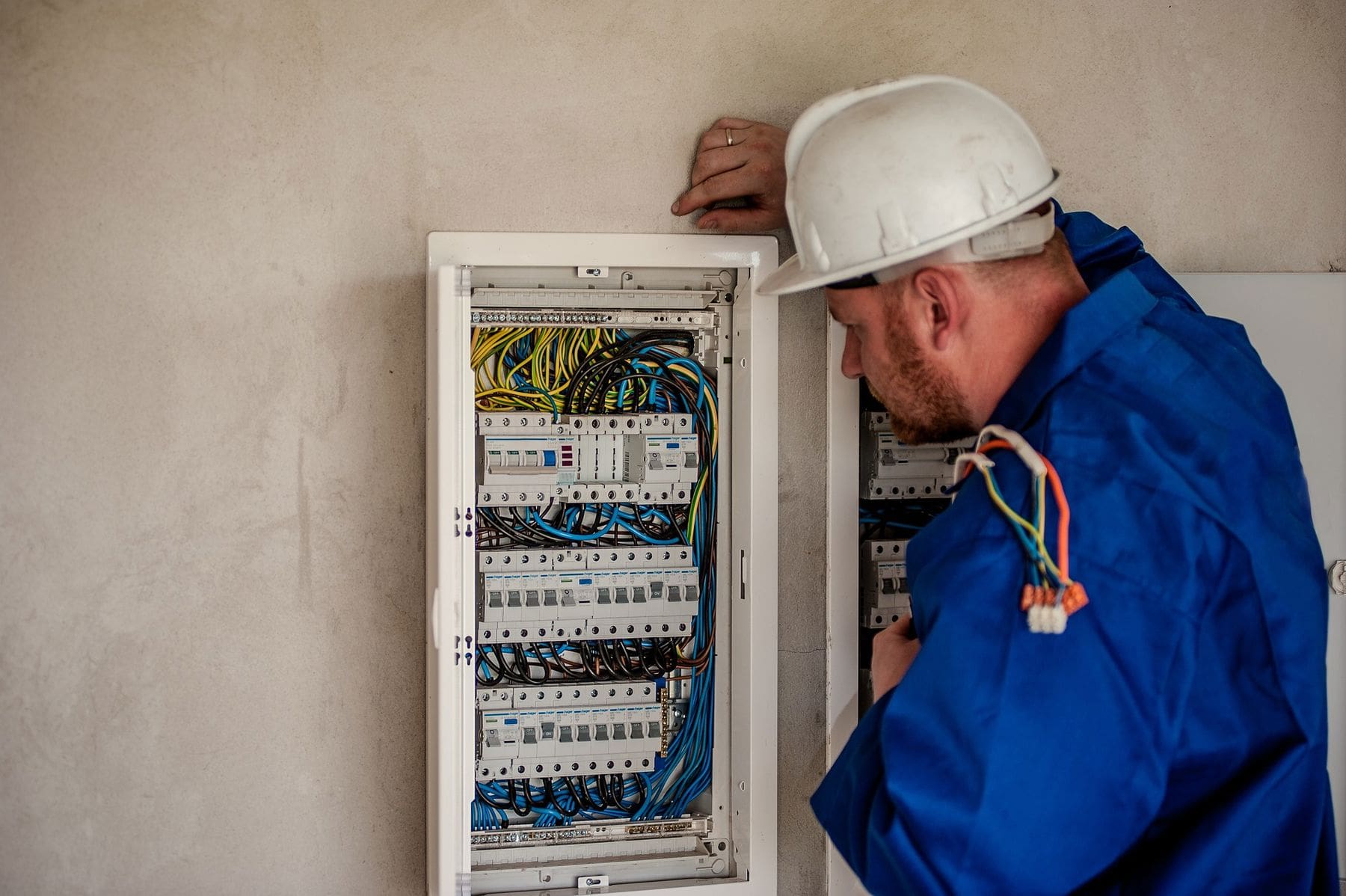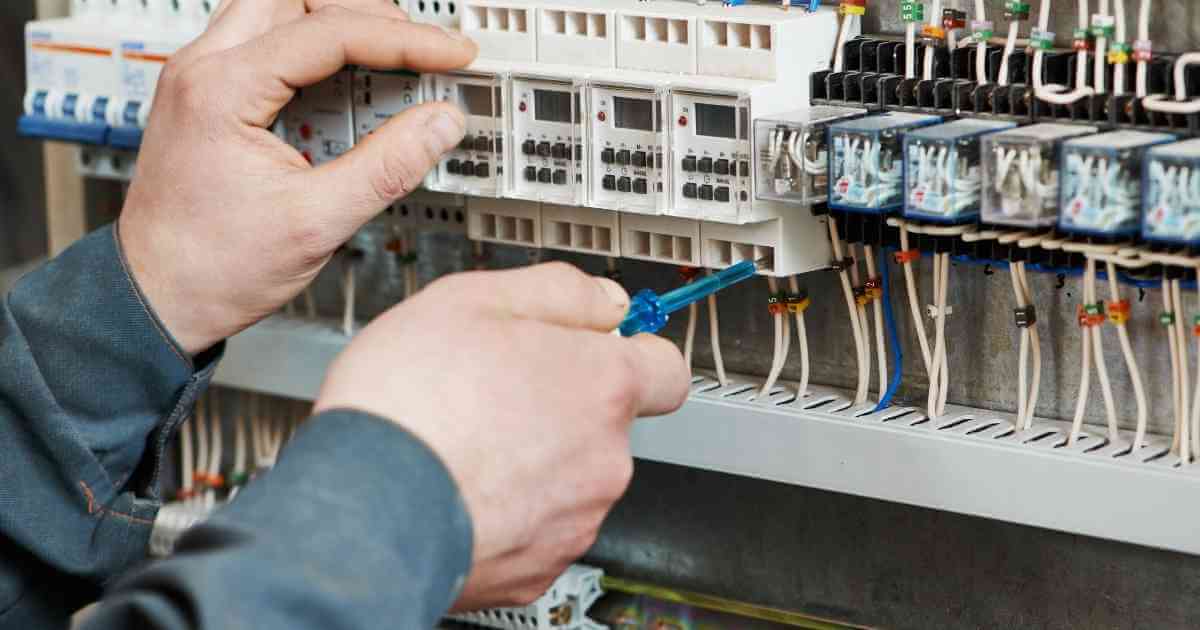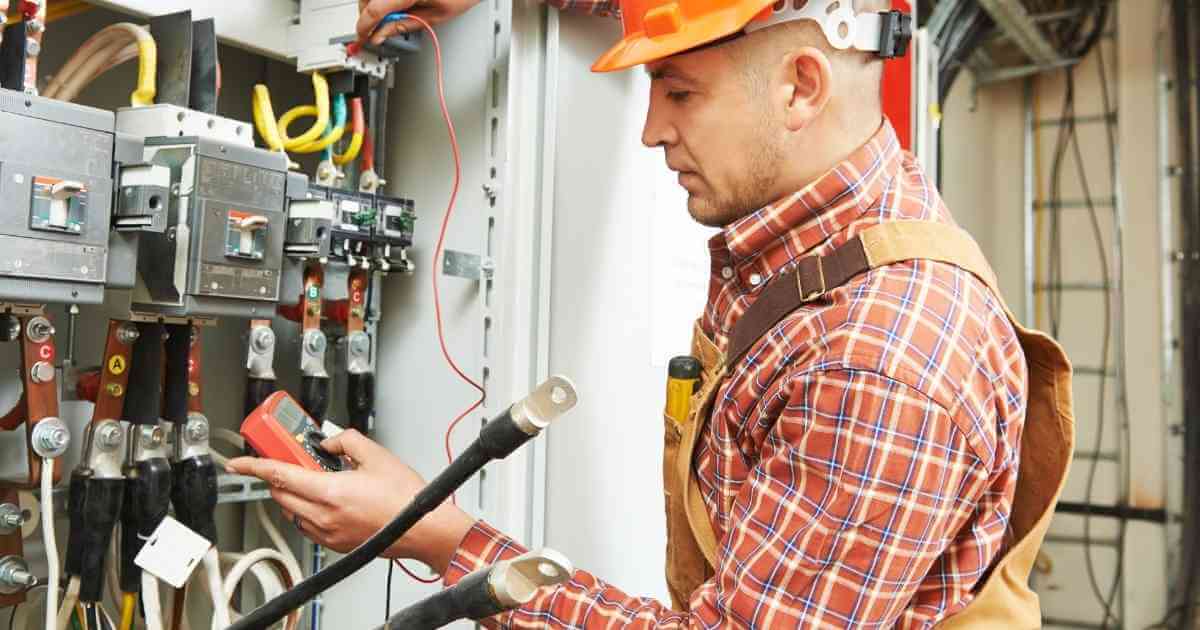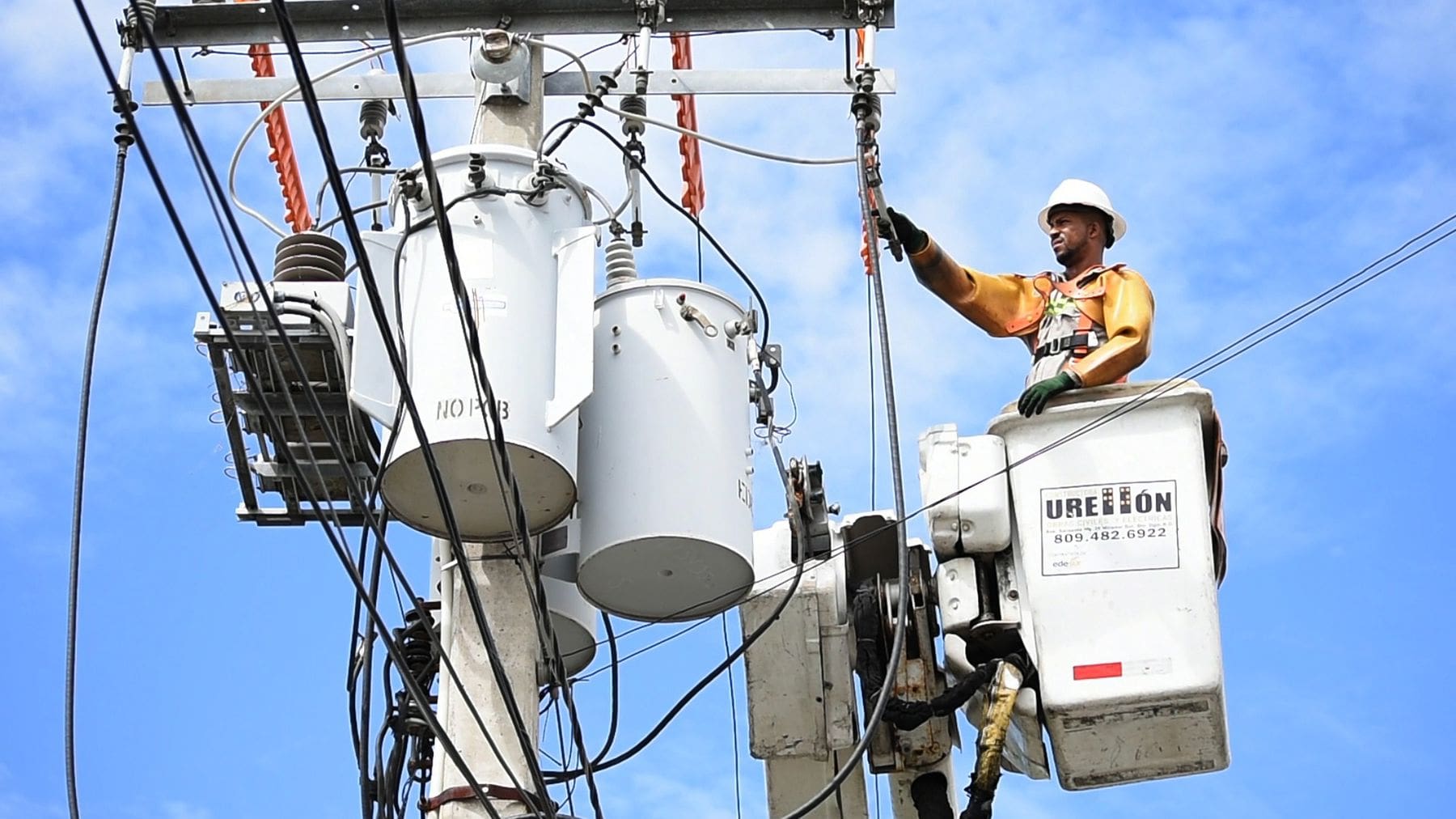Failing to grasp the extensive training, exams, and state-specific regulations could lead to costly delays or even derail an aspiring electrician’s goal of attaining the coveted master electrician status. We’re sharing this guide on the training duration, steps, and things to consider when becoming a master electrician.
How Long Does It Take to Become a Master Electrician?
On average, it takes seven years to become a master electrician. During this time, you must undergo rigorous training, gain hands-on experience, and pass various examinations. The specific duration can vary depending on factors such as the level of specialization, state licensing requirements, prior experience or education, and the length of the apprenticeship.
Mastering the electrical trade culminates in the master electrician exam, a comprehensive assessment that can test your expertise and qualify you to supervise and manage electrical projects autonomously.
| Level | Duration | Education Requirements | Experience Requirement | Licensing Requirements |
| Apprenticeship | 4 years | High school diploma or equivalent | Entry-level training under supervision | May need an apprentice license or certification, depending on the state |
| Journeyman | 6 years | Completion of apprenticeship program | 4-5 years of experience as an apprentice | Must pass journeyman exam and obtain licensing |
| Master | 1-2 years | May need additional training | 7+ years of total experience, including journeymen experience | Must pass the master electrician exam and meet work experience requirements for this status’ electrician licensing |
In this article, you’ll learn everything you need about available careers and how to become a professional electrician.
- Timing: How long before you can get licensed?
- Training programs: What is an electrician apprenticeship program, and how many years of experience do you need?
- Trade schools: What educational programs are available at an electrician trade school, community college, or vocational school?
- Degrees: Do I need a high school diploma? Is a college degree necessary? Do I need an associate degree?
- Certificates: What certificate programs are right for me?
- Licenses: Do I need electrical contractor licenses?
- Career options: What independent electrical contractors will I work for, or can I be my own boss?
What Does an Electrician Do?
An electrician is a skilled tradesperson who installs, maintains, and repairs electrical systems and components. As an electrician, you must interpret complex electrical diagrams, blueprints, and schematics to carry out your work accurately and comply with local and national electrical codes and regulations.
The scope of an electrician’s duties is diverse and encompasses various tasks. They may be involved in installing new systems during construction projects, replacing outdated wiring or equipment in existing buildings, or troubleshooting and repairing electrical issues as they arise.
As you aspire to be a professional electrician, you must comprehensively understand electrical theory, circuitry, and the operation of various electrical components, such as switches, transformers, motors, and control panels. An electrician’s key duties encompass:
- Interpreting technical blueprints and wiring diagrams with precision.
- Conducting tests and routine maintenance on electrical components.
- Selecting the appropriate electrical equipment tailored to specific building requirements.
- Thoroughly inspecting electrical systems, backed by a solid grasp of electrical theories.
- Executing prompt and effective emergency electrical repairs.
- Diagnosing and resolving challenges within electrical infrastructures.
- Staying abreast of and ensuring compliance with state and local electrical regulations.
- Mentoring and overseeing the development of junior electrical staff.
How Do You Become an Electrician?
To work as an electrician, you first need to get your high school degree and the recommended pre-apprenticeship training at trade schools. Then, complete a paid, multi-year apprenticeship. Finally, get licensed or certified (if required).
Typically, the path to becoming an electrician spans four to five years. However, the duration can vary based on several considerations:
- Prior experience: Those with backgrounds in construction or the military may find some of their experience relevant, potentially reducing the length of their apprenticeship.
- Formal education: Completion of an electrical contractor training program or enrollment in a technical school program or a related associate degree can lead to a reduced duration. Additionally, such educational backgrounds might make the candidate more competitive and well-prepared.
- State regulations and licensing: Different states have their own requirements and exams for becoming an electrician. While some states have reciprocity agreements where licenses from one state can be transferred to another, many do not.
- Specializations: Electricians can choose to specialize in areas like residential, commercial, industrial, or outside lineman work. Some specializations may require additional training or certifications.
- Continued education: Even after becoming a licensed electrician, many professionals continue to take courses to stay updated with the latest technologies, safety protocols, and industry best practices.
- Apprenticeship: This is often the most critical phase in an electrician’s training. It involves hands-on work under the guidance of a licensed electrician. Completing this phase successfully is usually a prerequisite to obtaining licenses.
How Long Do You Need to Train as an Electrician?
It takes about four to five years to train as an electrician. Students gain expertise during the apprenticeship program and can advance their skills as they continue working. In many states, it takes 8,000 hours of being mentored by journeymen and an appropriate education before you can get licensed.
At MatchBuilt, we know how the scarcity of skilled labor, especially electricians, impacts our clients’ businesses, most of whom are general residential construction contractors.
In fact, the construction industry in the United States needs more than half a million workers above its current pace of hiring to meet demand this year, which should last into the next decade.
That said, there isn’t a better time to explore a career as an electrician, as both compensation and demand are at peak levels and will be there for years to come.
The first step to understanding how long it takes to become one is to understand the career path that’s best for you and what classroom training and electrical apprenticeships are right for you.
What Are the Things to Consider Before Deciding to Work as an Electrician?
Becoming an electrician requires considerable effort to gain the necessary skills of a construction worker and experience and get licensed. You should commit to it when you sincerely want to venture into this line of work. Consider the following if you’re thinking of becoming an electrician.
- Your will and ability to deal with challenges: Being an electrician on construction sites can be quite challenging. Like the residential construction managers we often place, qualified candidates must work long, odd hours and sometimes in dangerous environments. You may also need to follow strict instructions, be very keen on details, and collaborate with others.
- Your level of education: Your level of education matters when it comes to becoming an electrician, as you’re required to have a high school degree or equivalent. Becoming one is almost impossible if you don’t meet this requirement.
- Your health: As an electrician, you’ll be involved in tasks that require you to stand for long hours. You must be physically fit and healthy to have a rewarding career, and specific tasks can be challenging if you have health issues. Consider whether you’ll be comfortable handling physical work for long hours before you commit to becoming an electrician.
- Your flexibility: Electricians need to be flexible since an emergency that requires their attention can happen anytime, including during odd hours. For example, you could be very busy on a particular day, and the next day, you could have little to no work. When considering getting into a career, ask yourself whether you will be flexible enough to address issues when they arise.
- Your state’s reciprocity: When considering becoming an electrician, it’s crucial to research reciprocity agreements between states, as this will impact your ability to work in desired areas. By obtaining licenses in a state with favorable reciprocity, you can increase your career prospects and flexibility across multiple regions rather than being limited to a single state.
What Are the Different Types of Electricians?
There are several types of electricians. By knowing them and their duties and responsibilities, you’ll be better positioned to choose the exact area of focus. Here’s a brief breakdown.
Types of Electricians Based on Career Levels
The distinctions between electrician roles directly impact the duration and requirements for progression. Understanding the different career levels in the electrical trade is crucial for aspiring electricians to plan their path effectively.
Recognizing these levels helps set realistic expectations and timelines for achieving each milestone, providing you with a structured approach to skill development and licensure. Below are the types of electricians based on the levels they go through in their careers.
Apprentice Electrician
A person’s duration to become an apprentice ranges from state to state. However, it takes an average of four years to become an apprentice electrician. This type of electrician usually works under the guidance of experienced electricians.
You gain competence through class work and hands-on training while still being paid when attending electrical classes. A high school education, or its equivalent, is a requirement.
Journeymen Electrician
Becoming a journeyman electrician takes approximately six years, and the period may be longer or shorter, depending on where you live. You must first be an apprentice for at least two years.
Once you’ve gained hands-on experience, you can work without much guidance during training. You are required to have licensing to work at this level.
Master Electrician
It takes approximately one year to become a certified electrician. During this period, they must complete all the training requirements to lay a good foundation for a great career.
At this level, you can supervise those in the programs. You need to get licensed to work at this level.
Types of Electricians Based on Specialization
Electricians can specialize in various areas, such as residential, commercial, industrial, or automotive electrical work. Being aware of these specializations early on allows you to tailor your training and experience accordingly.
Certain specializations may require additional certifications or extended apprenticeships, potentially influencing the overall time required to work as an electrician in that specific domain. Below are the types of electricians based on their specialty.
Residential Electricians
Residential electricians install, maintain, troubleshoot, and upgrade home electrical systems. These include houses, apartments, condos, etc. These electricians may work independently for electrical contractors.
Commercial Electricians
Commercial electricians work on commercial projects, such as offices, and are responsible for maintaining and troubleshooting systems within these setups.
Construction Electricians
Construction electricians deal with installing electrical systems in new buildings. Their responsibilities include performing basic wiring and maintaining safety procedures and building codes.
Automotive Electricians
As the name suggests, automotive electricians deal with vehicles’ systems. These include ignition systems, lighting, air conditioning and heating, transmission, anti-theft systems, etc.
Avionics Electricians
Avionics electricians are responsible for handling an aircraft’s electrical and wiring systems. These include installing and inspecting electrical systems and keeping the connections well-insulated.
Industrial Electricians
Industrial electricians work in chemical plants, power plants, manufacturing facilities, and other industrial projects with complex systems. Electricians must get work experience under industrial electricians either in their apprenticeship or journeyman levels.
Types of Electricians Based on Where They Work
The location and setting where electricians operate can also affect the timeline for achieving the highest professional status. For instance, working as an inside wireman or an outside lineman may involve different licensing requirements, safety protocols, and training durations.
Be familiar with these distinctions to make informed decisions and prepare accordingly. In effect, you meet the necessary qualifications for where you want to work.
Inside Wiremen
The duties of inside wiremen involve working on on-premise electrical wiring. These include installing electrical control panels, fire alarm systems, electrical outlets, lighting fixtures, etc.
Inside wiremen typically work in residential, commercial, or industrial settings, collaborating with construction teams and contractors to integrate electrical components seamlessly into new or existing buildings. They must possess a deep understanding of electrical theory, blueprints, and schematics to perform their duties safely and effectively.
Outside Linemen
An outside lineman is also referred to as a line installer. As the name suggests, an outside lineman deal with outdoor electrical systems such as fiber optics, powerline transmissions, and communication cables.
Since their work often involves working on high-tension lines up to 1000 feet, outside linemen receive extensive safety training, including climb training. Their duties include ensuring that electrical wiring is functioning correctly and conducting repairs when there is a problem.
What Are the Benefits of Becoming an Electrician?
Becoming an electrician offers numerous advantages, including career security, decent pay, and the potential to establish your own business. With a shortage of skilled electricians, I’ve seen how this trade provides ample employment opportunities and the flexibility to work independently as a contractor or entrepreneur.
There are so many benefits that come with being an electrician. Have a look at some of them.
- Career security: People will always need electricians to install, maintain, or repair electrical wiring. That means it is hard not to have work when you have the necessary experience.
- Good pay: Electricians usually get good pay and are always in demand, so they rarely run out of work. They can also work long hours just to get that extra income. You can never go wrong with becoming an electrician if you are looking for a trade that offers decent pay,
- Affordable training: Training as an electrician is affordable compared to attending the university and gives you a chance to get paid while in training. Although what you get during the training period may not be comparable to what full electricians earn, it can still help you make a living as you study.
- Opportunity to become your own boss: Becoming an electrician can help you achieve your dreams if you’ve always wanted to be self-employed. After getting licensed, you don’t need to start looking for jobs, as you can quickly become your own boss and work on your terms.
What Are the Steps to Becoming an Electrician?
To work as an electrician, one must obtain a high school degree, complete a training program, gain practical experience, and pass the required licensing test. This process typically takes four to five years, involving a combination of classroom instruction and training under the guidance of licensed professionals.
This is the actual guide used by professionals who we helped succeed in the industry.
1. Finish High School
Finishing high school education is one of the electrician training requirements. Having the diploma demonstrates that you understand the basic mathematics, science, English, and soft skills necessary for this career.
So, if you have been asking, “Can you be an electrician without a degree?” the answer is yes.
2. Go to Trade School
Consider going to a trade school or vocational college for pre-training. It will help you understand the basics of an electrical career and the national electrical code. This provides a solid foundation for your progress.
Some trade schools offer short programs lasting up to nine months, while others take a few years. Although attending a trade school is optional in some states, it is advisable and helpful for gaining a solid foundation for an electrician career.
3. Apply For an Apprenticeship
You need to apply for an apprenticeship to work as an electrician. Find an apprenticeship at a trade school or apply through a union.
When applying for a program, you may be required to take an aptitude test that tests your mathematics and comprehension skills. Apprenticeship combines training, classroom instructions, supervision, and mentorship from more experienced electricians.
4. Pass a Master Electrician Exam
Depending on your location, you need to pass an electrician licensing exam, just like you would need to if you were trying to become a certified construction manager. The exam will test your knowledge of performing electrical work.
Research how often these exams are offered in your area, the registration requirements, and whether you need to pay some fees. The master electrician exam will test your knowledge of these building codes:
- National Electrical Code (Developed by the NFPA)
- National Electrical Safety Code (Developed by the IEEE)
- The International Building Code/Fire Code/Energy Conservation Code (Developed by the ICC)
5. Get Licensed
You need to get licensed before working as an electrician. The requirements for obtaining an electrician license vary from state to state.
Research your state’s requirements and ensure you qualify before applying for electrician licensing.
What Is an Example of an Electrician Job Description?
There are numerous job opportunities available for a professional electrician. Below is an example of an employment description for an entry-level industrial electrician.
INDUSTRIAL ELECTRICIAN JOB OPENING
QUALIFICATIONS
- At least one year of hands-on experience in industrial electrical installations.
- Completion of an Associate’s degree, electrical apprenticeship, or a certified training program in a related field.
- Proficiency in troubleshooting both 480VAC and low-voltage DC electrical systems.
- Exceptional attention to detail guarantees comprehensive and meticulous task completion.
- Expertise in conveyor systems, including air cylinders, diverters, sensors, and motor/speed controls.
- Proven ability to work autonomously with minimal supervision, showcasing strong self-management skills.
RESPONSIBILITIES
- Oversee the maintenance of both electrical and mechanical equipment in the plant to ensure optimal production.
- Implement and manage a regular preventive maintenance schedule for conveying systems, power transmissions, and other rotating equipment using digital tools and data.
- Record and maintain detailed logs of completed work tasks and schedules.
- Expertly diagnose and resolve issues related to production equipment, encompassing electrical, mechanical, hydraulic, and pneumatic components.
- Lead initiatives to enhance production lines with the latest equipment and technology upgrades.Administer the inventory of electrical spare parts, including the determination of appropriate stock levels.
- Collaborate on the plant’s overall preventive maintenance strategy for both mechanical and electrical equipment.
- Execute advanced electrical troubleshooting and repairs as needed.
- Regularly handle objects weighing up to 70 pounds throughout the workday.
- Be prepared for occasional exposure to environmental factors like dirt, odors, noise, and weather extremes.
- Flexibility to work both 10-hour and 8-hour shifts, with weekend availability.
- Utilize and apply skills in schematics and electrical systems, including but not limited to, level probes, flow meters, drives/VFDs, and the interpretation of electrical blueprints.
BENEFITS
- Secure, direct, and long-term employment with predictable weekly compensation.
- An attractive pay rate is set at $23.00 per hour.
- Extensive opportunities to earn additional income through overtime.
- Comprehensive health package encompassing medical, dental, and vision plans.
- Life insurance coverage provides peace of mind for you and your loved ones.
- Forward-thinking 401(k) Retirement Savings Plan to pave the way for a stable financial future.
- Real pathways to career progression and professional growth.
Related Questions
Is Becoming a Qualified Electrician Worth It?
Pursuing a career as an electrician is worth it, especially if you’re after career security and career stability. When you get a master electrician’s license, you’ll have the opportunity to become an independent contractor or start an electrical business, providing a path toward entrepreneurship and being one’s own boss.
What Education Is Needed to Work as an Electrician?
A high school education or equivalent is required to work as an electrician. It provides the essential foundation for a career in fields such as physics, communications, and maths.
How Much Does It Cost to Train as an Electrician?
On average, attending a trade school will cost you $5,000 to $15,000 for the entire program, whereas an apprenticeship program will cost you $250 to $1,420 a year. The cost of becoming an electrician depends on where you take the program.
What Do I Need to Become a Professional Electrician?
To become a professional electrician, you need a high school education. Additionally, you need to attend a trade school (optional) and an apprentice program. On top of that, you need to get licensed.
Is It Hard to Train as an Electrician?
Becoming an electrician is challenging because you must study and attend an apprenticeship program for years. You also need to demonstrate considerable work experience for licensing.
How Old Are Most Master Electricians?
Most master electricians are in their late 20s or early 30s by the time they achieve that level of certification. With the typical seven years of training and experience required, many electricians obtain their master electrician’s license in their early to mid-30s.
What Are the Highest-Paid Electricians?
The highest-paid electrician jobs are typically in industrial settings, such as power plants, manufacturing facilities, and large construction projects. Work that involves more complex systems, hazardous environments, or a high degree of specialization tends to command a higher master electrician salary.
Is a Master Electrician Better Than a Journeyman?
A master electrician is considered better and more advanced than a journeyman electrician. These electricians have undergone additional training, passed a more comprehensive test, and gained several more years of experience to qualify for that highest-level certification.
Conclusion
Understand the typical duration, licensing requirements, and necessary examinations to make informed decisions and stay motivated throughout the process. Ultimately, this awareness paves the way for a rewarding career as a master electrician, unlocking opportunities for higher earning potential, increased career growth, and the ability to oversee and mentor others in various industries.
After completing the necessary training, check here for tools to create a great resume, prepare for tough interview questions, and button up your LinkedIn profile.
![How Long Does It Take to Become an Electrician? [2024 Guide]](https://b3418441.smushcdn.com/3418441/wp-content/uploads/2022/09/how-long-does-it-take-to-become-an-electrician-300x171.jpg?lossy=2&strip=1&webp=1)
